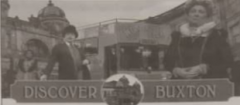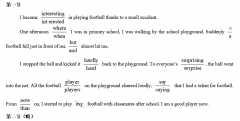2014上海市虹口区二模英语试题答案(3)
According to the Harvard Health Letter, several studies have shown that people 54 new information better when they take a nap shortly after learning it. And, most 55 , a 2007 study of nearly 24,000 Greek adults in the Archives of Internal Medicine found that people who napped
56 had a 37 percent reduced risk of dying from heart disease compared to people who didn’t nap.
Of course, napping isn’t 57 for everyone. If you’re suffering from inability to sleep, naps that are too long or taken too late in the day can 58 with your ability to fall or stay asleep at night.
But for most, naps can make you feel sharper and happier. Naps provide different benefits
59 on how long they are. A 20-minute nap will boost alertness and concentration; a 90-minute snooze(小睡)can 60 creativity.
According to prevention.com, you 61 a natural dip in body temperature between 1 p.m. and 3 p.m. A short nap at this time can boost alertness for several hours and, for most people, shouldn’t 62 being able to fall asleep at night.
Pick a dark, cozy place that’s not too warm or too chilly. Prevention.com 63 napping on the couch instead of in bed, so you’re less 64 to snooze for too long.
Surprisingly, the best place to take a nap may be a hammock(吊床)if you have one. A Swiss study 65 last year found that people fell asleep faster and had deeper sleep when they napped in a hammock than in a bed. That same rocking motion that puts babies to sleep works wonders for grown-ups, too.
51. A. relieve B. promote C. operate D. support
52. A. feeling B. frame C. sense D. mind
53. A. cope with B. put aside C. talk about D. carry upon
54. A. remark B. consider C. remember D. concern
55. A. reportedly B. unbelievably C. constantly D. frankly
56. A. regularly B. enormously C. heavily D. strongly
57. A. exact B. correct C. right D. accurate
58. A. connect B. deal C. compete D. interfere
59. A. focusing B. depending C. relying D. basing
60. A. enlarge B. engage C. enhance D. enroll
61. A. explore B. experience C. exercise D. implement
62. A. produce B. handle C. affect D. urge
63. A. postpones B. discourages C. acknowledges D. recommends
64. A. obliged B. tempted C. adopted D. attracted
65. A. pronounced B. published C. discovered D. cultivated
Section B
Directions Read the following three passages. Each passage is followed by several questions or unfinished statements. For each of them there are four choices marked A, B, C and D. Choose the one that fits best according to the information given in the passage you have just read.
(A)
Like many other small boys, I was fascinated by cars, especially because my oldest brother was a bit of a car guy and subscribed to cool magazines like Car and Driver and Motor Trend. Every so often, one of those magazines would run an article on the “Car of the Future”. They featured unconventional things like small nuclear reactors as power sources. Yet, frankly, my car doesn’t do anything that my brother’s Studebaker didn’t do. It goes, it stops, it burns gasoline. I still have to steer it, and it still runs into things if I don’t steer it carefully.
But guess what? All of these things are likely to change in the not-so-distant future. It may not burn gasoline, I may not have to steer it, and it may be a lot better at not running into things.
Airbags aren’t the be-all and end-all in safety. In fact, considering the recent news about people occasionally being killed by their airbags in low-speed crashes, they obviously still need some development. But they aren’t going away, and in fact, you can expect to see cars appearing with additional, side-impact airbags, something some European car manufacturers already offer.
Better than systems to minimize injury in the event of an accident, however, are systems that minimize the likelihood of an accident happening in the first place? Future cars may be able to remove many of the major causes of accidents, including drunk-driving, and tailgating (与前车距离过近). Cars could be equipped with sensors that can detect alcohol in a driver’s system and prevent the car from being started, for example. As early as next year, you’ll be able to buy cars with radar-equipped control systems. If the radar determines you’re closing too quickly with the car in front, it will ease up on the throttle(油门).
Scientists are now working on a system that can brake, accelerate and steer a vehicle down a highway on its own. Will cars eventually be able to drive themselves?
66. The author was fascinated by cars because ________.
A. other small boys liked to own a car of their own, too
B. he read untraditional things about cars in his brother’s magazines
C. his oldest brother loved to take him to places in his car
D. he often booked cool car magazines himself
67. By saying “my car doesn’t do anything that my brother’s Studebaker didn’t do”, the author means that ________.
A. my car is far better than my brother’s
B. my car is not as good as my brother’s
C. much improvement has been made in the design of cars recently
D. not much has changed in the performance of cars so far
68. Which of the following statements is true of airbags?
A. They are going to disappear gradually.
B. They are in need of further improvement.
C. They are a standard feature of European cars.




